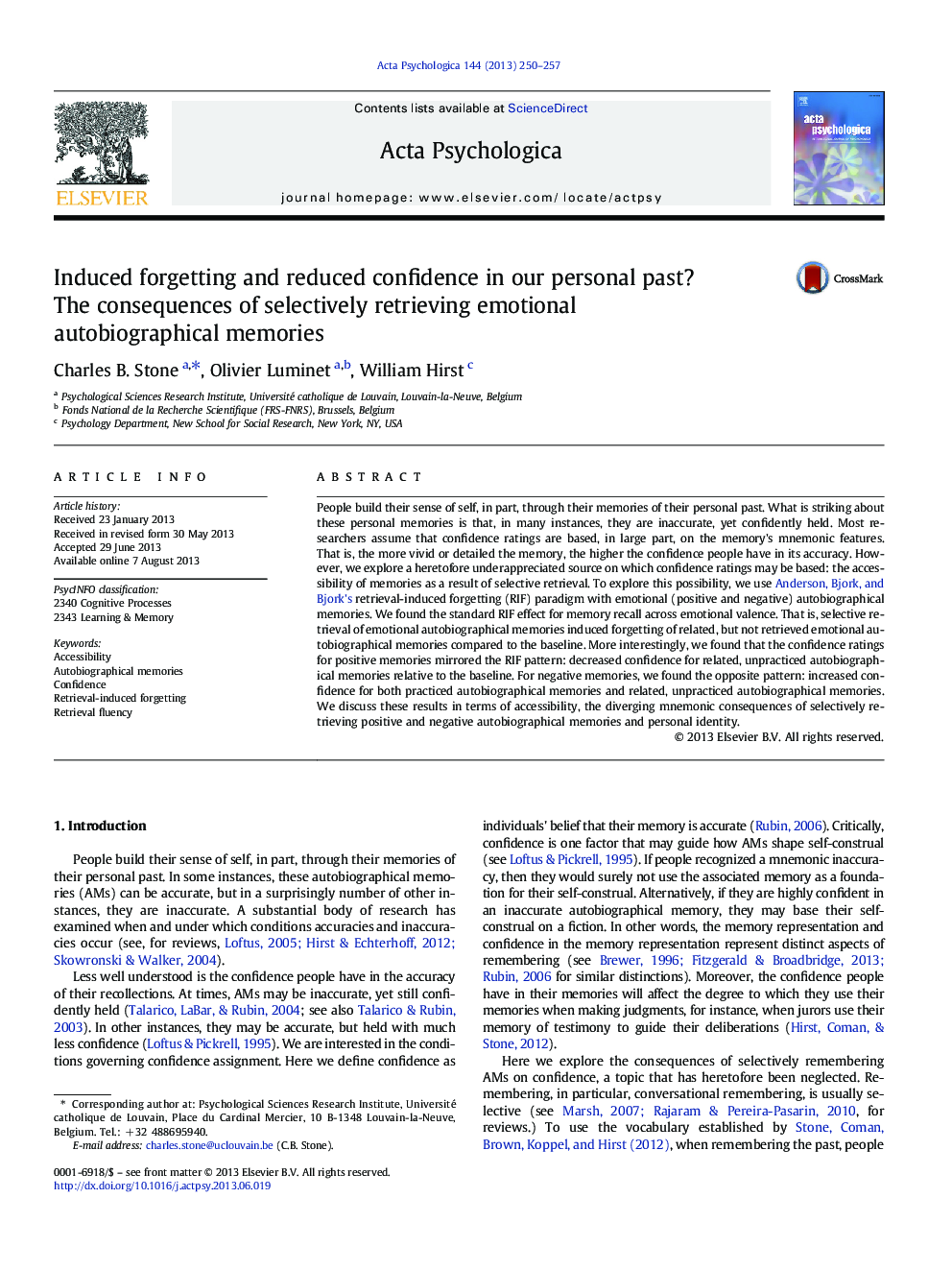| Article ID | Journal | Published Year | Pages | File Type |
|---|---|---|---|---|
| 10453770 | Acta Psychologica | 2013 | 8 Pages |
Abstract
People build their sense of self, in part, through their memories of their personal past. What is striking about these personal memories is that, in many instances, they are inaccurate, yet confidently held. Most researchers assume that confidence ratings are based, in large part, on the memory's mnemonic features. That is, the more vivid or detailed the memory, the higher the confidence people have in its accuracy. However, we explore a heretofore underappreciated source on which confidence ratings may be based: the accessibility of memories as a result of selective retrieval. To explore this possibility, we use Anderson, Bjork, and Bjork's retrieval-induced forgetting (RIF) paradigm with emotional (positive and negative) autobiographical memories. We found the standard RIF effect for memory recall across emotional valence. That is, selective retrieval of emotional autobiographical memories induced forgetting of related, but not retrieved emotional autobiographical memories compared to the baseline. More interestingly, we found that the confidence ratings for positive memories mirrored the RIF pattern: decreased confidence for related, unpracticed autobiographical memories relative to the baseline. For negative memories, we found the opposite pattern: increased confidence for both practiced autobiographical memories and related, unpracticed autobiographical memories. We discuss these results in terms of accessibility, the diverging mnemonic consequences of selectively retrieving positive and negative autobiographical memories and personal identity.
Keywords
Related Topics
Life Sciences
Neuroscience
Cognitive Neuroscience
Authors
Charles B. Stone, Olivier Luminet, William Hirst,
